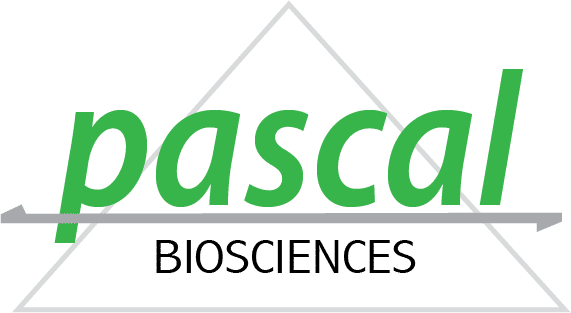预约演示
更新于:2025-05-07
TAP1 x HLA class I抗原
更新于:2025-05-07
基本信息
关联
1
项与 TAP1 x HLA class I抗原 相关的药物作用机制 HLA class I抗原刺激剂 [+1] |
在研适应症 |
非在研适应症- |
最高研发阶段临床前 |
首次获批国家/地区- |
首次获批日期1800-01-20 |
100 项与 TAP1 x HLA class I抗原 相关的临床结果
登录后查看更多信息
100 项与 TAP1 x HLA class I抗原 相关的转化医学
登录后查看更多信息
0 项与 TAP1 x HLA class I抗原 相关的专利(医药)
登录后查看更多信息
117
项与 TAP1 x HLA class I抗原 相关的文献(医药)2025-04-01·Journal for ImmunoTherapy of Cancer
Reversible downregulation of HLA class I in adenoid cystic carcinoma
Article
作者: Faden, Daniel L ; Gao, Chengzhuo ; Denize, Thomas ; Dzu, Thuc Q ; Thierauf, Julia C ; Flynn, Samantha E ; Zhang, Edwin ; Herrmann, Markus D ; Gao, Xin ; Huang, Yu-Chung ; Mitchell, Dawn R ; Wirth, Lori J ; von Paternos, Adam ; Raizer, Jeffrey ; Fintelmann, Florian J ; Fordham, Jo Anne ; Codd, Elizabeth M ; Mendel, Julia J ; Sadow, Peter M ; Park, Jong Chul ; Faquin, William C ; Li, Annie ; Iafrate, A John ; Kaluziak, Stefan T ; Gonda, Bianca L ; Kalyan, Prinjali ; Merkin, Ross D ; Bhan, Atul K ; Yang, Diane
2024-10-01·International Journal of Cosmetic Science
Dandruff lesional scalp skin exhibits epidermal T cell infiltration and a weakened hair follicle immune privilege
Article
作者: Harries, Matthew ; Bhogal, Ranjit K. ; Limbu, Susan L. ; Purba, Talveen S. ; Kundu, Rhia ; Paus, Ralf
2024-01-01·Cell Transplantation
Human Umbilical Cord–Derived Mesenchymal Stem Cells in the Treatment of Multiple Sclerosis Patients: Phase I/II Dose-Finding Clinical Study
Article
作者: Khwaireh, Hind ; Aldughmi, Mayis ; Awidi, Abdalla ; Ababneh, Osameh ; Al-Radaideh, Ali ; Hourani, Bayan ; Alghwiri, Alia ; Arafat, Sally ; Atiani, Serin ; Abu Moshref, Kawthar ; Hassuneh, Mona R. ; Rahmeh, Reem ; Jaghbeer, Joud Al ; Dahbour, Said ; Bawaneh, Hisham ; Jamali, Fatima ; Alhattab, Dana
2
项与 TAP1 x HLA class I抗原 相关的新闻(医药)2024-11-22
摘要:最近,癌症疫苗的个性化定制受到了广泛关注。尽管最近研究了针对各种肿瘤的众多疫苗技术,但治疗性癌症疫苗(CVs)的表现仍然不佳。尽管通常在临床前数据中显示出积极的结果,但临床试验尚未产生令人满意的数据。这种失望的主要原因是识别肿瘤特异性抗原的挑战,这些抗原应该仅由肿瘤细胞过度表达,而不是健康细胞。在恶性肿瘤免疫疗法中使用的大多数肿瘤抗原是非突变的并且过度表达的自身抗原,它们主要激活具有次优T细胞结合位点的T细胞,使它们无法有效促进抗肿瘤反应。创建能够激活效应T细胞和记忆T细胞以特异性响应肿瘤抗原的强大治疗性CVs是CVs的主要目标之一。在将白细胞介素(IL)和肿瘤浸润性淋巴细胞(TILs)通过移植传递到自体癌症患者后,目标肿瘤退缩表明T细胞对肿瘤退缩至关重要。迄今为止发现的肿瘤抗原可以分为三组:肿瘤特异性分化抗原、肿瘤特异性共享抗原和组织特异性独特抗原。在组织宿主对癌症、病毒性疾病和自身免疫性疾病的免疫反应中,CD4+ T细胞至关重要。端粒酶是通用癌症抗原的一个原型,因为它在大多数肿瘤中表达,并在致癌变化中发挥固有的实际作用。这些理想特性促使研究使用癌症抗原、端粒酶的催化亚基、人类端粒酶逆转录酶(hTERT)作为普遍适用的免疫学靶标的可能性。不同免疫疗法制剂的早期临床测试已证实,在个体中引发针对hTERT的特异性免疫反应是安全的,这可能会影响临床结果。基础免疫学测试已证明hTERT具有免疫原性。本章描述了近年来在癌症免疫疗法疫苗方法的发展中针对的肿瘤抗原,以及可能存在的新型肿瘤抗原类别,如非传统抗原、HERVs和杂合肽。
1.引言
疫苗在预防细菌和病毒性疾病方面取得了成功。自从200多年前第一种疫苗的创建以来,它们通过预防20世纪一些最严重的疾病,挽救了全球数亿人的生命。疫苗通过向个体暴露由细菌(例如,白喉、破伤风和结核)和病毒(例如,麻疹、脊髓灰质炎和小痘)引起的疾病威胁的弱化版本来工作。这使得他们的免疫系统能够根据它们的独特标记,或“抗原”,识别这些威胁,并对抗它们。在个体感染细菌或病毒之前给予这些疫苗通常最有效。癌症是全球死亡的主要原因。然而,由于几个原因,癌症的情况更为复杂,这使得开发治疗或预防癌症的免疫疗法更具挑战性。具体来说,癌细胞比细菌和病毒更接近我们的正常健康细胞,我们的免疫系统将其识别为外来物。此外,每个人的肿瘤在某种程度上是独特的,并包含独特的抗原。因此,需要更先进的方法来开发有效的CVs。目前,每年有超过800万患者死于恶性肿瘤,预计在未来20年内,这一数字将从目前的1400万增加到2200万。结直肠癌、肺癌、前列腺癌和乳腺癌是西方世界最常见的恶性肿瘤类型,使其成为死亡的主要原因之一。随着人口和医疗实践的变化,预计胰腺、肝脏和甲状腺恶性肿瘤将急剧上升。一个多世纪以来,人们一直在研究CVs,但与针对传染病的疫苗的巨大影响相比,它们提供了更多的希望而不是实际的好处。鉴于肿瘤对免疫系统在难以识别的水平上的影响,癌症免疫疗法主要集中于疾病治疗,这比传染病疫苗要克服的障碍要大得多,后者更强调疾病预防。
2.癌症的普遍性
癌症是全球死亡的主要原因。目前,每年有超过800万患者死于恶性肿瘤,预计在未来20年内,从现有的1400万例增加到2200万例。结直肠癌、肺癌、前列腺癌和乳腺癌是西方世界最常见的癌症类型。在美国,肺癌、前列腺癌、乳腺癌、胰腺癌和结直肠癌(CRC)的致死率最高,也是最常被诊断的恶性肿瘤。人类恶性肿瘤的分子特征揭示了个体肿瘤的复杂性和不同个体之间肿瘤的多样性。因此,更个性化的治疗方法可能会提高治疗效果。治疗方法正逐渐从基于组织转向关注特定肿瘤的突变谱。例如,曲妥珠单抗(抗Her2抗体),以前专门用于治疗乳腺癌,现在也被应用于治疗其他Her2细胞表面表达升高的癌症。
3.肿瘤抗原
癌症免疫疗法的发展集中在识别肿瘤抗原上,这些抗原在主要组织相容性复合体(MHC)分子存在的情况下产生,并有可能触发针对肿瘤的CTL反应。这种反应可能会影响肿瘤细胞的破坏和恶性肿瘤的复发。早期的癌症免疫疗法针对广泛的抗原以防止逃逸变异的出现。这些方法在涉及不同肿瘤类型的众多临床试验中进行了评估,如辐射自体肿瘤细胞、自体肿瘤裂解物、整个肿瘤衍生的mRNA和异体肿瘤细胞系。然而,这些方法面临挑战,包括需要大量的肿瘤组织、收集和处理的复杂性,以及满足良好生产规范(GMP)等监管标准的问题。其中一个主要障碍是整个肿瘤细胞中非肿瘤自身抗原的丰富性,这减少了肿瘤特异性抗原的数量并促进了免疫耐受。为了应对这些挑战,已经开发了治疗性癌症疫苗,通常关注一个或几个癌症抗原。肿瘤抗原分为两类:肿瘤特异性抗原(TSAs)和肿瘤相关抗原(TAAs)。TSAs被认为在癌症疫苗中更有效,因为它们是癌症细胞独有的,并且源于肿瘤特异性的遗传突变或病毒抗原。
4.识别癌症抗原的历史
自19世纪90年代以来,就有报道称首次尝试使用细菌提取物来促进抗肿瘤免疫。根据一项研究,热杀死的粘质沙雷菌和化脓性链球菌被用于患有无法治愈的软组织肉瘤的个体。在治疗时,超过50%的病例中肿瘤已完全退缩,导致五年以上生存率。还发现了温度水平与治疗效果之间的良好相关性。广泛认为抗癌免疫反应是Coley毒素有效性的原因。尽管当代免疫疗法报告了无与伦比的反应率,但其他研究并未显示出类似的有效性,特别是在接受Coley毒素治疗的癌症患者中。Coley毒素可能在癌症患者中失败,因为其有效性依赖于非特异性免疫激活。长期以来一直存在争议,即宿主免疫细胞是否能够区分肿瘤细胞和健康细胞。1953年,Foley提出,通过植入免疫接种可以阻止由甲基胆蒽诱导的肉瘤的生长。“免疫耐受”的概念遭到了怀疑。20世纪70年代后,多项研究表明,化学致癌作用为每只小鼠产生了各种癌症抗原,这些抗原不能转移到另一只小鼠中产生免疫力,即使那只小鼠具有相同的遗传背景并使用了相同的化学致癌作用程序。自从Ikeda等人发现化学产生的肉瘤引起的细胞毒性T细胞反应比自然产生的要大得多且更持久。他们的发现可能表明,在临床环境中使用癌症免疫疗法是具有挑战性的。之后,自20世纪80年代以来,在小鼠模型中由宿主T细胞识别的“癌症抗原”是基于独特的获得性遗传变化,或“新抗原”。也被认为是“癌症抗原”的有癌症-睾丸抗原P1A(小鼠)和MAGE(人类)。除了睾丸外,它们在恶性肿瘤的变异性中被陈述,而不是在标准的成熟组织中。因此,癌症-睾丸抗原发展成为一个流行的免疫疗法靶标。然后,识别癌症抗原的方法稳步改进,特别是基因测序技术,它发展迅速。除了已经识别的来自酪氨酸酶的三种肽之外,发现的五种新抗原来自体细胞突变,为针对新抗原的T细胞在调节黑色素瘤中确立了领导作用。由于下一代测序已在医疗治疗和研究中被商业采用,新抗原现在已成为免疫疗法的中心。
5.人类肿瘤抗原
5.1.肿瘤抗原的鉴定
癌症患者的血液或肿瘤已被用于分离抗肿瘤CTL克隆。表达克隆是一种常用技术,涉及通过转导肿瘤cDNA库分离肽编码基因,并评估转导细胞刺激CTL克隆的能力,以识别这些CTL识别的肽。然后可以通过转染其片段来定义发现的基因编码抗原肽的区域,评估具有适当HLA结合模式的候选肽,以确定它们是否能使靶细胞对CTL裂解敏感。使用这种方法已成功鉴定了许多抗原肽。为了鉴定TAAic肽,“反向免疫学”技术涉及选择具有足够结合HLA的蛋白质内的肽,例如由突变的癌基因产生的蛋白质,该蛋白质要么优先过度表达,要么由肿瘤表达,现在被广泛使用。发展和体外测试潜在肽的HLA结合。最佳结合肽被加载到抗原细胞上,并用于体外刺激T淋巴细胞,以产生识别肽脉冲靶细胞的克隆或CTL线。这种方法的局限性在于肿瘤可能无法有效处理已鉴定的肽。因此,确认表达CTL编码肽的基因的肿瘤细胞至关重要。还应检查细胞或基因的常规转染体,或者通过siRNA或shRNA沉默基因表达的细胞。从肿瘤细胞表面免疫纯化MHC I类分子并释放抗原肽是寻找抗原的第三种技术。这种技术在确定或验证经过翻译后修饰的肽的重要性方面非常有效,例如依赖糖基化的天冬酰胺脱酰胺作用、丝氨酸/苏氨酸磷酸化和肽剪接,尽管必须通过质谱直接识别洗脱的肽序列。使用这些不同的技术,已经发现了被抗肿瘤CTL识别的大量抗原肽。根据亲本基因的表达模式,这些抗原可以很容易地分类(图3.1)。肿瘤细胞用来提升自己的抗原肽的一致更新列表。
图 3.1 CD8 T细胞能够识别的主要肿瘤抗原类别。
6.T细胞可以识别的肿瘤抗体类别
T细胞有时识别的“肿瘤抗原”并不一定是在肿瘤特异性方式下产生的。过度表达在癌细胞中的抗原和仅在癌细胞中表达而不在健康细胞中表达的抗原是其中之一,如图3.1所示,肿瘤抗原的一些特征在表3.1中指定。
6.1.高肿瘤特异性抗原
由于它们的肿瘤特异性表达模式,由点突变、病毒蛋白和癌胚基因产生的三类抗原可以诱导针对肿瘤的T细胞反应(图3.2)。健康细胞(底部面板)和癌细胞(上部面板)被显示产生抗原肽。只有病毒感染的细胞表达病毒抗原。突变可能导致能够与HLA I类分子结合的改变肽,而野生肽则无法(左)。改变可能会改变与HLA I类分子结合的肽,导致循环CTL将改变的肽识别为非自身。全基因组去甲基化导致恶性肿瘤中癌胚基因的表达。由癌胚基因产生的MAGE型抗原不在胚系或正常健康细胞表面表达,因为胚系细胞不包含HLA I类分子。在各种组织中差异表达的基因负责编码分化抗原。因此,某些肿瘤类型和匹配的健康组织表达它们。由于增强的转录或基因扩增,某些基因在恶性肿瘤中过度表达。结果肽在一些或所有健康器官中表达水平低,但在某些恶性肿瘤中大量表达。
6.1.1.病毒抗原
据估计,病毒负责20%的癌症病例,病毒产生的遗传变异可能作为肿瘤抗原肽。一些病毒被认为参与致癌作用。免疫系统识别与人类乳头瘤病毒(HPV)和头颈部恶性肿瘤相关的Epstein-Barr病毒和人类T细胞白血病病毒作为与致癌相关的癌症排斥抗原。其中,宫颈癌显示出HPV病毒抗原E6和E7的高表达,可以作为细胞毒性T细胞的靶标。迄今为止,很少有临床试验检查了与病毒相关的抗原疫苗治疗的有效性和可行性。
6.1.2 由突变基因产生的抗原
大量从恶性肿瘤个体的血液中或肿瘤中获得的CTL已被用于鉴定由广泛表达基因的突变产生的抗原。肽序列中经常添加一个氨基酸,以允许其与MHC I类分子结合或产生CTL可以识别的新抗原因子(图3.2)。突变引起的移码有时可以创建一个新的抗原肽。致癌突变导致一些突变抗原肽。已经证明CDK4基因突变可以改变CDK4与其p16/INK4a抑制剂的结合方式,鼓励细胞无限制地分裂。
图 3.2 细胞毒性T细胞可以检测到的肿瘤抗原。根据亲本基因的表达方式,肿瘤抗原被分类。
CTNNB1基因的变化稳定了β-catenin,增强了其与Lef-Tcf转录因子的相互作用,并产生了一个抗原肽。在黑色素瘤发展中涉及的基因可能因此而持续转激活。已经证明,CTL检测到的CASP8基因突变降低了细胞对凋亡的敏感性。然而,伴随这些变化的抗原肽通常是特定于发现它们的恶性肿瘤的乘客突变。预计具有高突变率的微卫星不稳定性(MSI)+结直肠癌、黑色素瘤、肺癌和其他肿瘤将包含更多的突变抗原,并且更具免疫原性。值得注意的是,一些患者的抗肿瘤CTL反应主要集中于突变表位。令人惊讶的是,只分离出少量能识别来自P53、KRAS或NRAS等在癌症中经常突变的基因的肽的CD8 T细胞。可能,相关的肽不是非常免疫原性,因为这些CTL的绝大多数是通过反向免疫学而不是通过肿瘤培养与淋巴细胞混合发现的。也发现了来自染色体易位如ETV6-AML1和BCR-ABL的肽。
6.1.3.癌胚基因
癌胚基因是肿瘤特异性抗原(TSA)的一个重要额外来源,如图3.2所示。这些基因中包括MAGE基因,它们由位于X染色体的三个区域(称为MAGEA、MAGEC和MAGEB)中的功能性基因组成。在X染色体上发现的其他癌胚基因组包括BAGE、SSX、LAGE/NY-ESO1和GAGE。癌胚基因在多种癌症类型中存在,除了滋养层和胚系细胞外。这些基因由于其启动子区域的去甲基化,表现出肿瘤特异性表达模式,这一过程在进展性恶性肿瘤和男性生殖细胞中全基因组范围内观察到。滋养层和男性生殖细胞缺乏MHC I类分子,阻止了抗原呈现给T细胞。由癌胚基因产生的抗原肽衍生的MAGE型抗原似乎特异于肿瘤,使它们成为免疫治疗的潜在靶标,而不会对皮肤患者产生不良影响。然而,重要的是要注意,最近的发现表明MAGE-A12在脑细胞中的表达较低。某些异常转录本,无论是在健康组织中低水平表达还是沉默但在肿瘤中上调,已被识别为产生抗原肽。这些转录本与癌症相关基因不同。此外,还发现了来自在睾丸和急性髓系白血病中表达的具有抗凋亡和促增殖特性的cyclin-A1蛋白的肽。
6.2.低肿瘤特异性抗原
这类抗原包括分化抗原和在恶性肿瘤中过度表达的基因产生的抗原(图3.2)。
6.2.1.组织分化抗原
分化抗原专门在肿瘤细胞和由于组织分化的特殊特征而产生的正常组织细胞中表达。对这些抗原的一项研究表明,“肿瘤抗原”使黑色素瘤个体中的细胞毒性T淋巴细胞(CTLs)能够在正常黑色素细胞和肿瘤细胞之间进行区分。Gp100、MART-1/Melan A、酪氨酸酶等组织分化抗原在黑色素瘤患者的肿瘤细胞和黑色素细胞中表达。它们是专门在健康黑色素细胞的黑色素体中表达的酶,在恶性黑色素瘤细胞中过度表达,以允许区分表达水平。在对临床试验的综合审查中,使用Melan-A/MART-1、gp100和酪氨酸酶等黑色素细胞分化抗原的免疫治疗在转移性黑色素瘤个体中显示出2.5%的反应率。此外,使用与系统性和眼部自身免疫性相关的黑色素细胞分化抗原的副作用也有记录。因此,作为免疫治疗靶标,组织分化抗原已失去了部分相关性。
6.2.2.过度表达抗原
检测肿瘤抗原,这些抗原只需要少量HLA-肽复合物就能在细胞表面被检测到,应该是抗肿瘤免疫反应的第一步。阈值应该帮助T淋巴细胞识别与健康细胞相比在肿瘤细胞中过度表达的蛋白质产生的肽,从而产生肿瘤特异性。这些肿瘤抗原被称为“过度表达抗原”,因为它们在癌细胞中大量表达,主要有助于肿瘤细胞的发展和存在。例如,一些癌症类型过度表达了CEA、WT-1和Her-2/neu。一个重要的问题是,过度表达的抗原缺乏足够的抗原性和特异性用于临床应用。要被T细胞特别识别,健康组织和恶性组织之间的表达水平必须有显著差异。许多上皮性癌症,如卵巢和乳腺癌变,过度表达了编码生长因子受体的Her-2/neu癌基因。几项关于过度表达抗原的临床研究表明效果最小且有一些负面后果。
6.3.癌-睾丸抗原
只有正常的睾丸、正常的胎盘和癌组织表达癌-睾丸抗原,这些抗原被所有癌症类型的个体共享。HLA I类分子在性腺组织中不表达,这阻止了它们被识别为细胞毒性T细胞的目标;因此,它不能引发肿瘤特异性免疫反应。在1990年代,发现了最初的癌-睾丸抗原MAGEA1。已经发现了许多癌-睾丸抗原,如MAGE、XAGE1和NY-ESO-1,由于它们具有高度的肿瘤抗原性,可能被用作潜在的免疫治疗靶点。NY-ESO-1和MAGE,这两个睾丸癌抗原一直是临床试验的焦点,被发现作为CV治疗的效果只是边缘性的。需要注意的是,少数睾丸癌抗原在胚胎期的正常或健康组织中表达,一些成人组织中也有,而且,同源家族的某些分子存在于健康组织中,尽管它们中的大多数具有更高的抗原性,可能被认为是CVs有希望的靶点。
6.4.新抗原
在癌变的多步骤过程中,体细胞基因积累,涉及与细胞增殖、发育和生存相关的基因的重要突变(称为“驱动基因突变”),以及由基因组不稳定性引起的大量并发突变,这些不稳定性与黑色素瘤风险因素如紫外线和烟草使用有关(称为“乘客突变”)。新抗原是每个个体独有的非自身蛋白,源于癌症特异性基因变化,在健康组织中不存在。由于在胸腺成熟期间没有发展出免疫耐受,T细胞可以对新抗原产生强烈的免疫反应。这种反应是特定于肿瘤的,不会在健康细胞中发生,使新抗原成为各种癌症免疫治疗的有希望的靶点。
6.5.癌胎儿抗原
典型的胎儿抗原在成熟过程中被关闭,但在改造细胞中重新开启,包括胎蛋白和癌胎儿抗原。在体外、小鼠模型和临床研究中,这些抗原已显示出免疫原性,并作为靶点具有一定的用途。2008年,国家癌症研究所举办了一个研讨会,对当时发现的抗原进行评级和分类,发布了最优先的抗原和最有实验证据的肿瘤排斥证据。大多数抗原是非突变抗原,传统的,它们根据先前建立的标准进行分组,如它们的肿瘤特异性、免疫原性、致癌性、过表达的发生率和在恶性干细胞中的表达。上述肿瘤特异性抗原类别并非肿瘤特异性。P53肿瘤抑制基因和RAS癌基因都有广泛的突变。人们认为这些突变不太可能导致免疫原性、处理和呈现MHC限制性表位在足够相互的MHC I类分子或MHC II类分子中,并且在临床研究中通过免疫疗法估计和识别将是有问题的,几乎是不可能的。针对这些个人特定变化的高度有益的T细胞已经开始被认识。然而,可以预测肽表位将如何被翻译、呈现和结合的测序技术和算法已经改进。寻找可靶向的、患者特定的突变是困难的,这延迟了治疗。然而,许多研究人员正在集中研究策略,以更快地找到这样的肿瘤特异性靶点。
6.6.表位扩散
限制自身免疫和建立非常精确的记忆和效应细胞反应是针对特定肿瘤抗原的结果。这样的技术可能在生物学上产生相反的影响。这可能会增加对疫苗治疗有抵抗力的肿瘤细胞的数量,因为它们缺乏目标肿瘤抗原。然而,抗药性肿瘤表达额外抗原并随后增加与肿瘤相反的免疫反应的能力,即,对疫苗中不存在的抗原产生免疫反应,可能是一种好处。表位扩散就是这种现象的术语。表位扩散,也称为决定因素扩散,是一种免疫反应从一个抗原转移到同一组织中产生的另一个抗原的过程。自身免疫疾病研究和癌症免疫治疗研究都观察到了这种自发现象。肿瘤排斥的一个重要事件可能是由于T细胞攻击和破坏肿瘤细胞,导致肿瘤抗原从肿瘤细胞中释放出来,帮助针对各种抗原的后续T细胞浪潮。为了提供针对可能导致肿瘤排斥的未识别的、患者特定的突变抗原的免疫接种,针对共同抗原的免疫疗法可能是有用的。许多临床试验已经描绘了临床结果和对疫苗目标抗原的免疫反应之间没有联系。这可能与抗原的分布和对未测量的肿瘤抗原的免疫反应的出现有关。含有TAA的疫苗的关键作用可能是将表位转移到TSA,这反过来更热烈和有效地刺激T淋巴细胞,以诱导肿瘤排斥。
6.7.糖脂和糖蛋白作为抗原
恶性细胞膜上的碳水化合物被糖基转移酶和糖苷酶改变,与健康细胞上典型的分子不同。肿瘤细胞碳水化合物结构主要在数量上而非质量上发生变化。这句话表明,与正常细胞相比,肿瘤细胞显示出较少的碳水化合物结构。尽管如此,肿瘤细胞的细胞表面碳水化合物可能具有多种结构,允许免疫方法将它们识别为肿瘤相关抗原(TAAs)。含有碳水化合物的抗原在识别发育和分化过程中的细胞中可能至关重要。确定与肿瘤相关的碳水化合物抗原(TACAs)主要有两种方法。第一种方法涉及系统分析碳水化合物的化学成分和结构;如果发现了这样的结构,就会导致形成针对异常成分的抗体(Abs)。另一种方法使用专门针对肿瘤特异性碳水化合物抗原的单克隆抗体。使用这种方法,在多种人类恶性肿瘤中发现了几个糖脂抗原。
7.利用肿瘤抗原的生物标志物
除了作为潜在的治疗靶点,肿瘤特异性抗原还可用于恶性肿瘤的识别和分类。肿瘤抗原通常在血液中被检测到,因为它们通常被肿瘤分泌到血流中。此外,在化疗或放疗破坏肿瘤细胞后,通常会释放出更多的肿瘤抗原,这些抗原通常位于细胞内结构或细胞器中。因此,它们可以帮助评估治疗反应和治疗后复发的风险。由于技术进步,现在可以轻松获得基于蛋白质的生物标志物,如肿瘤抗原。例如,组织分化抗原和前列腺特异性抗原(PSA)经常用作前列腺癌(PC)的预后和诊断标志物。除了PSA,其他肿瘤抗原如乳腺癌的Survivin、肝细胞癌(HCC)的MAGE以及卵巢癌的TP53和NY-ESO-1也可以作为诊断标志物。然而,除了PSA,这些标志物由于特异性和敏感性有限,并不常用,临床上也不广泛可用。
8.人类肿瘤抗原的处理
当蛋白酶体分解细胞蛋白时,会创建可以被CTL检测到的肽。有四种不同类型的蛋白酶体,包括常规蛋白酶体和免疫蛋白酶体。TAP转运蛋白然后将蛋白酶体分解后剩余的肽转移到内质网腔中。由TAP、分子伴侣钙网蛋白、氧化还原酶ERp57和tapasin(Tpn)组成的肽负载复合物可以在将它们装载到HLA I类分子(CRT)之前进一步修剪具有延伸N末端的肽。分泌途径然后将肽/HLA复合物运输到细胞膜。
8.1.MHC I类呈递途径
蛋白酶体,一个大型胞质复合物,降解细胞蛋白以产生CTL识别的抗原肽,主要负责此过程(图3.3)。与抗原处理相关的转运蛋白(TAP)将从蛋白酶体降解中释放的肽转移到内质网腔(ER)(图3.3)。一旦进入氨基肽酶,如ERAP1和ERAP2,可以进一步修剪肽。由TAP、Tpn、ERp57和钙网蛋白组成的复合物有助于具有正确序列和大小的肽与MHC I类分子结合。稳定的MHC/肽I类复合物将留在ER,而移动到细胞膜(图3.3)。正常细胞膜上显示的大多数MHC/肽复合物不会被T细胞识别,因为耐受性。然而,在这些情况下,肿瘤细胞或被病毒攻击的细胞具有从病毒相关蛋白中形成的新型肽库,可以对这些肽发展出免疫反应。免疫系统能够识别细胞蛋白含量的微小变化,因为CTL能够识别具有仅有10个MHC/肽复合物的细胞。
图3.3 T-淋巴细胞 CD8+ 处理肿瘤抗原。
8.2.蛋白酶体
蛋白酶体20S是大型的,具有桶状结构,由4个堆叠的七聚体环组成,定义了一个酶降解室。20S蛋白酶体的两个内环由亚类(α1-α7)组成,两个外环由亚类(β1-β7)组成,其中三个(β1、β2和β5)在脊椎动物的蛋白酶体中具有催化作用。蛋白酶体26S是在蛋白酶体20S与19S调节复合物结合时形成的,负责降解泛素化蛋白。蛋白酶体对产生抗原肽的必要性最初的迹象之一是发现泛素化对展示抗原卵清蛋白(OVA)模型是必需的。后来,使用特定的细胞通透性蛋白酶体阻断剂与蛋白酶体催化亚型的羟基团结合,无论是不可逆的还是可逆的,都证实了蛋白酶体在产生抗原肽和将肽一般交付给MHC I类分子中的作用。据信,每个催化亚单位的N末端苏氨酸位点的羟基团执行启动肽键断裂的亲核攻击,这是根据突变研究和结合抑制剂的蛋白酶体晶体结构研究。这种亲核攻击糖苷键导致发展出一个仍然通过酯连接与蛋白酶体连接的肽片段。在催化区立即被水分子分解后,释放的肽随后返回到细胞质。
与蛋白酶体相关的三种重要的催化活性类型是肽基-谷氨酰胺肽键水解(PGPH)、类糜蛋白酶作用和类胰蛋白酶作用,它们分别在酸性、疏水性和碱性残基后断裂。对酵母蛋白酶体突变体的研究表明,类似半胱天冬酶的活性与β1亚类有关,而类糜蛋白酶和类胰蛋白酶作用分别与β2和β5亚类有关。然而,还有其他因素在起作用,因为一些蛋白酶体亚基在它们的特异性上表现出重叠,并且靠近切割位点的序列也会影响切割的强度。根据蛋白酶体破坏肽段的效率,MHC类I分子将在细胞膜上展示不同类型的肽段。已经发现蛋白酶体有可能将来自母蛋白的远距离肽片段结合起来形成抗原肽。肽段拼接是由于蛋白酶体催化室内的蛋白质降解而发生的。肽段通过转肽酶作用拼接,其中催化室内的肽片段的N-末端以亲核攻击攻击酰基-酶中间体。这一过程导致亲核肽的N-末端与从酰基-酶中间体释放的肽的C-末端之间形成了一个新的肽键。已经鉴定出五种拼接的抗原肽,其中三种由与母蛋白序列相反的片段组成。通过检查由gp100制成的拼接肽,其中包含RSYVPLAH片段连接到其C-末端的单个精氨酸(R),我们可以展示出防御性的亲核肽需要至少三个氨基酸的大小来完成拼接过程(RSYVPLAH R)。在拼接的RSYVPLAH R肽中,蛋白酶体必须进一步修剪延长的C-末端以创建最终的抗原肽。一项新研究表明,亲核肽将被安排在催化区域的一个单独空间内,与底物受体位点分开。这允许肽底物的C末端区域从蛋白水解切割点。肽拼接过程可以通过亲核肽在指定口袋内的安排而得到促进和加速。
8.3.标准蛋白酶体和免疫蛋白酶体
为了生成免疫蛋白酶体,LMP-7(5i)、MECL-1(2i)和LMP-2(1i),三个额外的催化亚基,被纳入免疫细胞中的蛋白酶体,取代了1、2和5亚基。细胞因子的作用增强了免疫蛋白酶体在疏水性和碱性残基后断裂的倾向,提高了细胞产生MHC类I分子所需的肽段的能力,这些肽段通常需要这些残基在它们的C末端。对缺乏2(5i或1i)或3个免疫亚类的老鼠的研究,无法展示MHC类I的几个表位,支持了这一理论。产生免疫蛋白酶体的细胞与产生常规蛋白酶体的细胞相比,具有不同的肽段库,这一事实可能显著影响癌症治疗策略的发展。在第一种情况下,肾细胞癌为CTL提供了来自常见蛋白RU1的肽段,而不是自体EBV转化的B细胞。这一点通过观察EBV转化的B细胞与肿瘤细胞相比,有大量的免疫蛋白酶体,这些细胞无法合成抗原肽,得到了阐明。随后,发现包括Melan-A/MART126-35、HLA-A2限制性肽段、酪氨酸酶369-377和gp100209-217在内的几个额外的肽段,被常规蛋白酶体而不是免疫蛋白酶体消化。在体外消化的长肽前体表明,一种类型的蛋白酶体未能处理抗原肽往往是由于内部断裂导致肽段丢失。有趣的是,对蛋白酶体处理的拼接肽的分析表明,一个肽主要由免疫蛋白酶体产生,而三个拼接肽主要由标准蛋白酶体产生。成功的肽拼接需要每种蛋白酶体都能产生所涉及的肽片段。8.4.中间蛋白酶体
发现少数组织拥有一些但不是全部的蛋白酶体免疫亚基,这表明存在由常规和免疫亚基融合组成的蛋白酶体(中间型)。通过识别其天然结构中的蛋白酶体,并利用针对蛋白酶体催化亚基的一组特殊的抗体,已经显示存在具有1(β5i)或2(β5i β1i)免疫亚基的中间蛋白酶体。根据依赖于前体亚类特性的蛋白酶体组装原则,没有其他形式的中间蛋白酶体。
8.5.产生抗原肽的额外蛋白酶
尽管大多数抗原肽被认为是由蛋白酶体产生的,但也有一些是由细胞质蛋白酶如胰岛素降解酶或TPPII降解的。最近的研究表明,蛋白酶体需要对PRAME肽的N末端进行切割,而thimet寡肽酶和nardilysin需要按顺序对C末端进行切割。已经提出,蛋白酶体辅助的MHC类I肽的羧基末端的修饰是由血管紧张素转换酶(ACE)促进的。在免疫治疗的背景下,通过蛋白酶体独立机制产生的抗原肽可能成为有吸引力的目标,因为这些抗原中的一些可能被肿瘤持续表达,尽管它们处于环境之中。
8.6.人类肿瘤抗原中心耐受
癌症患者的血液中显示CTL针对分化抗原或由癌-生殖系基因产生的抗原,这表明对这些抗原的先天免疫耐受要么不存在,要么不充分。值得注意的是,免疫或中间型蛋白酶体通常比常规蛋白酶体更有效地产生由MAGE基因编码的抗原肽。相比之下,免疫或中间型蛋白酶体不产生变异抗原,这些抗原通常由常规蛋白酶体产生。尽管胸腺上皮细胞的确切蛋白酶体组成尚不清楚,但假设其主要由免疫蛋白酶体组成。在癌症患者的肿瘤或血液中识别免疫蛋白酶体依赖性肽段的T淋巴细胞的缺乏可能反映了它们对分化抗原的有效中心耐受:胸腺选择不会放过针对免疫蛋白酶体依赖性分化肽段的T淋巴细胞。对于由癌-生殖系基因编码的抗原,情况更为复杂。如前所述,通常使用免疫或中间型蛋白酶体来处理这些抗原,这表明对这些抗原缺乏中心耐受。中心耐受的缺乏以前归因于这些基因在胸腺中不表达。然而,研究表明,髓质胸腺上皮细胞(mTEC),提供负选择的抗原,表达了多种癌-生殖系基因,但浓度较低。因此,预测mTEC中这些基因表达的减少会导致部分耐受,并有助于仅选择高亲和力T细胞的负选择。那些逃脱胸腺负选择的低亲和力T细胞将是癌症患者血液中发现的抗肿瘤T淋巴细胞的来源。这一观点得到了使用敲除小鼠癌-生殖系基因P1A的研究的支持。这些小鼠被认为具有非选择性的抗P1A T细胞库,包括T细胞。出乎意料的是,尽管在mTEC中可观察到P1A的表达,P1A-KO小鼠的抗P1A T细胞数量仅略有增加,它们的库与野生小鼠的区别很小。这表明野生型小鼠对这种抗原只有最小的耐受性。对抗原P1A的中心耐受性的明显缺乏可能是由于mTEC无法降解P1A肽段。因此,应该确定胸腺上皮细胞中表达的特定蛋白酶体类型,以更好地识别对癌-生殖系基因缺乏中心耐受性,并能够精确指出外周T细胞应具有相对较强亲和力的抗原,以及中心耐受性有限的抗原。
9.端粒酶作为通用肿瘤抗原
人类端粒酶逆转录酶(hTERT),端粒酶的催化亚基,被提出作为共同肿瘤抗原的原型。MDM2、CYP 1B1和Survivin是先前已确定的其他经典肿瘤抗原。人类端粒由重复的DNA序列组成,是非编码区域,位于染色体末端,核苷酸序列为TTAGGG。端粒酶全酶通过酶促保护端粒DNA来维持染色体稳定性,否则端粒DNA会随着多次细胞分裂而逐渐丢失,特别是在癌细胞中。端粒酶及其相关蛋白,如hTERT的生物学特性,如前所述,已被广泛研究。大多数人类细胞不具有端粒酶活性,并且经历有限次数的分裂,导致端粒缩短。相比之下,大多数人类癌症表现出hTERT表达,具有显著的端粒酶活性,并维持端粒长度。端粒酶复合体的限速成分hTERT,在端粒酶活性和其表达水平之间显示出强烈的相关性。通过使复制潜力无限化,肿瘤细胞中hTERT的表达已与肿瘤生长相关,并显著促进了肿瘤转化。例如,研究表明,人类中称为hTERT的遗传元素之一,可以使健康人的成纤维细胞和上皮细胞发展成肿瘤细胞。此外,在hTERT阳性肿瘤细胞中抑制端粒酶活性会导致端粒长度逐渐减少,并最终导致凋亡。
9.1.使用hTERT在临床试验中的免疫疗法
对癌症患者进行hTERT疫苗的临床评估,源于将hTERT作为TAA的转化和基础免疫学研究的结果。已有几项涉及近200名患者的报告试验(表3.2),结果已在其他地方进行了详细检查。在一项临床研究中,检查了19名转移性、HLA-A2阳性乳腺癌患者。他们接受了多达八次皮下(SC)注射的hTERT I540肽和GM-CSF。在治疗前后采集的外周血样本在体外分析,发现68%的患者显示出免疫反应。超过4%的CD8+肿瘤浸润性淋巴细胞(TILs)在免疫后但免疫前对I540 hTERT特异。TILs诱导的临床迹象包括肿瘤部位的疼痛和瘙痒,而病理迹象包括肿瘤微环境(TME)的显著变化,如坏死、水肿和组织细胞浸润。此外,观察到外周血hTERT特异性CD8+ T细胞可以被激活、增殖、分泌IFN-γ并消除肿瘤。一项探索性里程碑分析揭示了这些患者的总体生存(OS)与对hTERT的特定CD8+ T细胞免疫反应之间的相关性。
只有少数几种疫苗成分经过了彻底的研究,例如装载有hTERT抗原的B细胞或树突状细胞(DCs)、额外的佐剂、其他肽、与细胞因子结合的肽等。由于hTERT几乎在所有肿瘤中都有表达,包括乳腺癌、胰腺癌、肺癌和前列腺恶性肿瘤在内的多种肿瘤类型都已进行了研究。尽管这些研究中个体的客观反应率较低,但他们通常拥有较大的晚期肿瘤,并且之前已经拒绝过治疗。尽管在制备和试验设计上有所变化,且大多数患者处于晚期,但在这些初步试验中观察到了几个一致的结果。针对hTERT的免疫疗法已经显示出可以不造成伤害地引发免疫反应,能够影响临床结果,并且能够调节肿瘤微环境(TME)的变化。
9.2.使用疫苗阻断hTERT可能产生的副作用
尽管hTERT疫苗并未与患者中的重大不良事件(AEs)相关联,但目前尚无可用的长期安全信息。目前尚不清楚更强烈的hTERT免疫反应是否对表达hTERT的正常细胞产生负面影响。虽然大多数重要器官中缺乏端粒酶活性,但在造血干细胞(HSCs)、上皮细胞、受刺激的性腺细胞、淋巴细胞和基底角质细胞中检测到了HTERT mRNA的表达。临床前研究表明,CD34+刺激的T淋巴细胞在体外不会被hTERT特异性细胞毒性T淋巴细胞(CTLs)溶解。同样,在暴露于hTERT特异性CTLs后,用患者造血祖细胞恢复的免疫缺陷动物也未显示出对健康骨髓细胞的CTL介导的毒性。然而,遗传突变在hTERT或相关基因中的个体可能会因长期端粒酶不足而经历显著的临床效应。这些观察对于规划和进行针对hTERT的临床试验至关重要。
9.3.第二代hTERT疫苗接种
正在使用几种策略增强hTERT疫苗在体内引发的免疫反应。一种方法使用全长hTERT重组构建物而不是单个肽,以同时针对多个CD4和CD8表位。在一项治疗试验中,患有前列腺恶性肿瘤的患者接受了转染表达HTERT mRNA的自体DCs。该治疗在这项研究中被良好耐受。免疫后,检测到了具有hTERT特异性的CD8+和CD4+ T细胞。这些细胞与循环微转移灶的分子清除和前列腺特异性抗原的倍增时间增加相关。此外,95%患者的外周血显示hTERT特异性CD8+ T细胞增加。携带全长hTERT的病毒载体和直接注射编码全长HTERT的质粒DNA是另外两种选择。这两种选择都将避免与生产装载抗原的DCs相关的复杂制造和医疗问题。
最终目标是开发能够引发与病毒引发的特异性免疫反应一样强大和稳健的制剂。通过免疫接种针对各种肿瘤抗原所实现的T细胞反应频率仍然显著低于已知能够对抗病毒感染的T细胞反应。这一观察可能由肿瘤进展期间激活的几个已确立的免疫逃逸机制来解释,这些机制涉及宿主衍生因素和肿瘤起源因素(如GF、IL-10和PD-L1),它们抑制细胞免疫(例如,骨髓源性抑制细胞(MDSCs)、PD-1、调节性T细胞(TReg)和CTLA-4)。随着对这些过程的分子和细胞基础的更好理解,临床上针对这些机制已成为推进最新癌症免疫疗法的关键重点。
9.4.hTERT疫苗的未来方向和影响
总体来看,显然有效的hTERT特异性免疫疗法策略必须最大化免疫反应的诱导,并避免宿主和肿瘤所提出的免疫抵抗;然而,使用这种肿瘤的共同抗原来预防黑色素瘤,而不是疫苗,可能最终是一种具有最大科学潜力的方法。由于超过85%的患者恶性肿瘤过表达hTERT,合理地看待患者接受针对hTERT和其他常见肿瘤抗原的疫苗接种,作为一种阻止癌症生长或复发的方式,是有意义的。这一策略最终将在没有癌症诊断的健康人和轻微残留疾病存在的情况下(例如,在辅助治疗后)评估hTERT疫苗。这可能包括那些有遗传条件如BRCA1或BRCA2突变,使他们处于发展癌症的高遗传风险的人。
需要强调的是,尽管已确认产生了特定的免疫反应,但对于大多数患者来说,治疗性癌症免疫疗法一直是一个实验性的失败。治疗性癌症免疫疗法在许多III期临床研究中并未超过对照组的临床终点,如总生存期(OS)。然而,肿瘤负担和之前的免疫毒性治疗可能会严重影响患者的免疫能力,以至于尝试使用治疗性疫苗可能在所有但最孤立的案例中都是无效的。因此,一旦证明了安全性,研究人员正在积极地将创新的疫苗技术从转移性癌症转移到接受辅助治疗后有最小残留疾病的个体。也有理由认为,癌症免疫疗法的初始人体试验应该在辅助或其他低残留疾病环境中进行,这在伦理和科学上都是合理的。现在可能是时候用hTERT疫苗来测试这个想法了;然而,这还没有完成。hTERT疫苗要成功,必须克服长期免疫记忆的发展和特定毒性谱的创建这两个障碍。然而,目前有资源和机会在晚期癌症患者大量疾病的情况下评估端粒酶疫苗。
10.癌症疫苗的未来影响
10.1.癌症疫苗的前景
最近关于抗肿瘤T细胞的过继传递或使用T细胞激活抗体的研究显示了癌症疫苗技术的效力。许多接受这些药物治疗的患者取得了显著的临床结果,其中一些个体甚至在治疗开始后多年似乎没有疾病。然而,正如已经提到的,这两种治疗常常导致强烈的自身免疫不良反应的出现,这些反应必须得到管理。尽管对这些治疗的反应显示出相当的潜力,但许多患者继续对过继转移和刺激抗体疗法产生抵抗。治疗性癌症疫苗(CVs)旨在刺激已经在癌症个体的肿瘤或血液中发现的抗肿瘤CTL。此外,疫苗的目标T细胞经历了胸腺选择,这应该减少对健康器官释放的自身抗原产生不利免疫反应的风险。这两个因素共同使得疫苗特别有效地激活抗疫苗T细胞。总的来说,这些因素使得疫苗看起来更安全、更易于控制。更具体地说,在混合肿瘤淋巴细胞培养中发现的抗原肽,或者当来自癌症个体的T细胞在体外被肿瘤的自体细胞诱导时,应该是无害的,因为它们常常针对的是已经显示出先前冲动反应的抗原,通常没有任何明显的不良反应。然而,由于不一定清楚免疫系统是否能够成功攻击这些抗原,因此正确评估使用逆向疫苗方法发现的抗原的安全性非常重要,这种方法包括体外用脉冲DCs对癌症个体的T细胞进行初始。
即使在少数对含有MAGE-1或MAGE-3的肽、全长蛋白或病毒疫苗有反应的个体中,也没有观察到癌症患者的队列中出现不良反应。与抗疫苗T细胞相反,对免疫疗法有反应的个体在接种疫苗后其转移灶中抗肿瘤T细胞的存在显著增加。这一发现表明,少数抗疫苗CTL有可能启动或重新激活针对与免疫疗法无关的肿瘤抗原的T细胞。
10.2.疫苗的挑战:免疫抑制和肿瘤逃逸
大多数患有黑色素瘤的个体似乎对其肿瘤产生了自发的T细胞反应,这一点现在已经很好地理解了。虽然肿瘤部位存在TIL通常与良好的预后相关,但在许多情况下,这些TIL被肿瘤生长所压倒,并在肿瘤部位保持不活跃和被激活,这很可能解释了为什么到目前为止,癌症患者接种疫苗只导致了5-10%的临床反应。
有几个因素可能导致抗肿瘤淋巴细胞无法消除肿瘤。其中之一是T细胞先前在肿瘤上识别的抗原的丢失。这种抗原丢失的后果是由于影响抗原肽、HLA分子中的任何蛋白质以及处理MHC类I的机器的遗传缺陷。一个极端的例子是TAP转运体的减少,也称为tapasin,它在各种癌症类型中发现,影响抗原肽的处理和呈递。由淋巴细胞或NK细胞产生的细胞因子,如IFN,也可以改变肿瘤肽的谱系。IFN减少了正常蛋白酶体合成或降解的肽的呈递,同时通过上调HLA类I重链、TAP2、Tapasin、TAP1或2m的表达增强某些抗原肽的呈递。
确实,例如,免疫蛋白酶体并不处理来自黑色素瘤分化抗原的肽;相反,它们被常规蛋白酶体消化。因此,可能发生以下一系列事件:抗癌淋巴细胞在T细胞肿瘤浸润的初始阶段攻击肿瘤细胞。这些T细胞检测抗原的能力很可能是由于恶性肿瘤中标准或中间蛋白酶体的稳态表达。这些T细胞分泌INF,改变了附近肿瘤细胞的蛋白酶体组成。因此,肿瘤细胞开始表达依赖于免疫蛋白酶体的抗原,这些抗原可能被额外的抗癌T细胞识别,而不是依赖于标准蛋白酶体的抗原,这是免疫反应最初建立的。通过减少对抗癌T细胞出现肽的基因表达,肿瘤可能在整个途径中定期逃避免疫反应,这是在抗肿瘤CTL的选择压力下进行的。此外,IFN在肿瘤部位刺激的细胞产生的免疫调节物质的产生降低了免疫反应,并阻碍了抗肿瘤CTL的活动。
一种免疫调节物质是色氨酸2,3-双加氧酶(IDO)酶,它分解色氨酸并产生代谢产物,这些代谢产物限制了T细胞的增殖和活性,同时增强了肿瘤的生存和移动能力。另一个例子是程序性死亡配体1(PD-L1),它与其T细胞受体PD-1一起作用,减少T细胞的粘附、细胞因子和增殖,由肿瘤细胞释放,这也由干扰素触发。在这种情况下,通过使用细胞疫苗(CVs)和同时中和抗PD-L1或抗PD-1抗体来逆转局部免疫抑制,可能有助于维持抗癌T细胞反应的效力。通过延长携带肿瘤动物的寿命和增强抗原特异性免疫反应,PD-1抑制提高了在临床前结直肠癌和黑色素瘤模型中释放GM-CSF的肿瘤细胞疫苗的效率。当PD-1抑制和4-1BB刺激在不同的小鼠黑色素瘤模型中使用时,用表达多巴色素异构酶抗原的重组人腺病毒进行的免疫接种显著改善,肿瘤完全消失。最后,另一项研究发现,将表达GM-CSF的肿瘤细胞免疫疗法与PD-1和CTLA-4抑制抗体结合使用,有效地增强了动物卵巢和结肠癌(CC)模型中的肿瘤排斥反应。肿瘤特异性CTL的增殖、功能和肿瘤浸润因此增加。相反,抑制性Tregs的数量减少并在肿瘤部位被阻断。这些发现展示了组合疗法如何提高癌症疫苗的效率。
10.3.肿瘤疫苗的前景
开发更有效的免疫治疗性疫苗目前的障碍在于肿瘤逃避和免疫抑制的挑战。癌症免疫疗法应该旨在激活针对广泛抗原的T细胞,以最小化抗原变异逃逸的风险。此外,应该优先考虑针对具有高肿瘤特异性和普遍表达的抗原的疫苗。考虑到中间蛋白酶在大多数癌症中普遍存在,并且在暴露于炎症环境中的肿瘤中免疫蛋白酶起着至关重要的作用,由免疫蛋白酶和中间蛋白酶处理的肿瘤抗原似乎是这种情况下最有希望的方法。还必须考虑即使在抗原处理机制(如ERAP、tapasin和TAP)受损时仍能表达的相关靶标作为抗原。针对ER的蛋白质的信号序列是TAP独立抗原肽的主要来源,这些肽在被信号肽酶和肽酶切割后在ER中释放。在缺乏MHC类I处理机制的细胞中特别产生的抗原属于一类被称为与受损肽处理相关的T细胞表位的抗原。与受损肽处理抗原相关的T细胞表位由于这些肽与通过TAP运输的肽相比被排除在ER腔外,因此不会出现在TAP阳性细胞的表面。尽管母蛋白在胸腺细胞中有效表达,但野生型小鼠的胸腺上皮细胞无法消化与受损肽处理肽相关的T细胞表位,这与在TAP敲除动物中观察到的情况不同。因此,在野生型动物中不应发生识别这种TEIPP抗原的T细胞的负选择,与受损肽处理相关的T细胞表位的T细胞预计将比其他经过负选择的抗肿瘤T细胞表现出更大的亲和力。为了绕过肿瘤逃逸机制,现在可以识别在缺乏MHC类I处理机制组件或TAP的情况下传递的新肿瘤抗原。
CVs的分布方法也将显著影响其效果。理想情况下,疫苗应该引发强大的CTL反应。基于肽或蛋白质的疫苗在这方面并不理想。相反,基于产生所需抗原的病毒载体的疫苗具有高度的免疫原性,因为它们刺激适应性和先天免疫系统。具体来说,基于病毒的疫苗有效地感染DC,这对于启动抗肿瘤CTL至关重要。重组病毒载体已被证明可以诱导与抗癌效果相关的非常强大的CTL反应。然而,为了减轻某些载体在单次注射后由载体特异性中和抗体引起的不良反应,通常需要使用异源原始增强方法,其中增强和原始使用不同的载体。最后,逆转局部免疫抑制对于癌症免疫疗法的发展至关重要。抗癌疫苗可能对肿瘤表现出最小免疫抑制的个体最有效。研究已经广泛集中在开发有效的免疫调节酶抑制剂,如精氨酸酶、色氨酸2,3-双加氧酶(TDO)和IDO。还可以针对包括可溶性物质如白介素-10(IL-10)、半乳糖凝集素和转化生长因子-β(TGF-β)在内的各种其他免疫抑制因子,以及在肿瘤部位存在的MDSCs、TRegs和耐受性DCs等抑制性细胞。当采用T细胞转移癌症免疫疗法和检查点阻断抑制剂与针对这些免疫抑制元素的新药物结合时,未来的治疗方法显示出巨大的希望。
11.结论
疫苗在预防病毒性和细菌性疾病方面的有效性已经得到证实。自从200多年前第一个疫苗被开发以来,它通过避免20世纪一些最严重的疾病,帮助挽救了数亿人的生命。尽管临床前数据常常显示出有希望的结果,但临床试验尚未产生足够的数据。这些挫折的主要原因在于难以识别肿瘤特异性抗原,这些抗原应该相对于健康细胞被肿瘤细胞过度表达。大多数用于癌症免疫疗法的肿瘤抗原是非突变的自身抗原和过度表达的自身抗原,它们主要刺激T细胞,但T细胞结合位点不足,阻碍了它们有效地触发抗肿瘤反应。通过将IL和浸润肿瘤的淋巴细胞转移到患有自体癌症的人中,实现了客观的肿瘤缩小,这表明T细胞对肿瘤缩小至关重要。到目前为止,已经确定了三种类型的肿瘤抗原:组织特异性抗原、肿瘤特异性共享抗原和肿瘤特异性分化抗原。CD4+ T细胞对于规划宿主对癌症、感染性和自身免疫性疾病的反应至关重要。由于端粒酶在绝大多数癌症中表达,并在恶性转化中发挥着重要的实际功能,因此它是全面癌症抗原的模板。鉴于这些有利特征,已经探索了使用端粒酶催化亚型hTERT作为广泛适用的免疫学靶标的可能性。不同免疫疗法制剂的初步临床试验表明,在个体中诱导针对hTERT的免疫反应是可行的,这可能会影响临床结果。通过基础免疫学测试已经证明hTERT具有免疫原性。
识别微信二维码,添加生物制品圈小编,符合条件者即可加入
生物制品微信群!
请注明:姓名+研究方向!
版
权
声
明
本公众号所有转载文章系出于传递更多信息之目的,且明确注明来源和作者,不希望被转载的媒体或个人可与我们联系(cbplib@163.com),我们将立即进行删除处理。所有文章仅代表作者观点,不代表本站立场。
免疫疗法疫苗
2022-11-22
·生物谷
这项研究发现了IFN感应性的丧失在多个动物模型中使得肿瘤对ICB更加敏感。这可以通过两种机制介导,第一是经典MHC-I类分子的上调能够抑制NK细胞,第二是非经典MHC-I类分子Qa-1b的上调可以通过
免疫检查点阻断(ICB)疗法在多种肿瘤中都取得了巨大成功。然而,仍有许多患者对ICB没有响应,不同肿瘤中的免疫逃逸机制也需要进一步探索。
近日,由布罗德研究所(Broad Institute)的Robert T. Manguso和Kathleen B. Yates带领的研究团队,在著名期刊Nature Immunology发表重要研究成果[1]。
为了发现肿瘤逃避免疫治疗的机制,他们在接受ICB治疗的癌症模型中,开展了基因组层面的CRISPR筛选。
他们的发现让他们大吃一惊:在多种肿瘤模型中,肿瘤细胞对干扰素(IFN)感应性的丧失,竟然使得肿瘤对ICB的响应更加敏感。
具体来说,肿瘤的IFN信号通过两种方式发挥免疫抑制的作用:第一,肿瘤IFN感应能够上调经典的第一类主要组织相容性复合体(MHC-I)抑制自然杀伤(NK)细胞;第二,肿瘤IFN感应通过上调非经典的MHC-I类分子Qa-1b抑制CD8+T细胞。
要知道,大量的研究表明IFN-γ在肿瘤的免疫监视中发挥重要作用[2-4]。这一发现可以说颠覆了我们对IFN-γ信号的认知。
论文首页截图
接下来我们就一起来看看这个研究是如何开展的。
研究团队利用代表了5种癌症类型(黑色素瘤、胰腺癌、肺癌、肾癌和结肠癌)的8个小鼠肿瘤模型,进行CRISPR体内筛选,找出ICB治疗后富集或清除的sgRNA,以鉴定与ICB抵抗性或敏感性相关的基因(指该基因缺失时分别与ICB抵抗性或敏感性相关)。
他们发现Nlrc5、Pten、Casp8、Ccar1、Ubr5、Dot1lh、Smg9和Pdcd10的缺失与ICB抵抗性相关,并对Ccar1缺失这一新发现的ICB抵抗机制进行体内实验验证。
在ICB敏感性方面,除了已报道的Ptpn2、Traf2、Ripk1、Serpinb9、Cd47、Atg7外,研究团队还发现了Calr、Rnf31、Vps45、Ilf2、Pnpo、Kcmf1、Fitm2、Morc2a和Thop1的缺失与ICB敏感性相关,并进一步对Calr、Med16和Rnf31缺失介导的ICB敏感机制进行体内实验验证。
CRISPR筛选发现的与ICB抵抗性或敏感性相关的基因
研究团队进一步对清除的sgRNA进行了通路富集分析,令人意外的是,MHC-I类抗原呈递信号通路相关的基因在除Lewis肺癌细胞(LLC)外的所有模型中都被清除,细胞因子响应、II型IFN和先天免疫相关的基因也在多个模型中被清除。这提示这些基因的缺失可以使得肿瘤细胞对ICB更加敏感。
我们都知道,IFN-γ可以上调MHC-I类分子的表达,从而促进细胞毒性CD8+T细胞(CTL)识别肿瘤细胞[4]。还有很多研究表明,IFN感应性的丧失与ICB的抗性相关[2,3,5,6]。在类似的小鼠肿瘤模型中进行体外CRISPR筛选,发现肿瘤细胞IFN和抗原呈递通路的丧失会引起肿瘤细胞对CTL杀伤的抵抗[7]。而本研究发现抗原呈递和IFN通路相关基因的清除竟然与ICB的敏感性相关,这似乎与上述研究结果相矛盾。
为了搞清楚矛盾背后的原因,Manguso团队进一步对比了他们的体内CRISPR筛选结果和前人的体外CRISPR筛选结果,结果发现了一些与IFN(如Jak1、Ifngr1、Ifngr2)和抗原呈递(如Tap1、Tap2、B2m)相关的基因,在体外和体内CRISPR模型中分别发生了富集和清除。
这一发现提示,在体外研究中,这些基因的缺失可能促进了肿瘤细胞对T细胞杀伤的抵抗;而在体内研究中,这些基因的缺失让肿瘤细胞对T细胞更敏感。
体外模型与体内模型中CRISPR筛选得到的sgRNA对比
为了进一步探究IFN诱导肿瘤细胞对ICB抵抗的机制,Manguso团队对比了ICB治疗后的清除的sgRNA与IFN-γ刺激后改变的IFN刺激基因(ISG)。结果显示,抗原呈递相关基因(H2-T23、B2m、Tap1、Tap2、Tapbp和Erap1)在ISG中富集,这些基因同样在ICB治疗后清除的sgRNA中富集,这提示这些基因能够被IFN-γ刺激诱导上调,并与ICB治疗的抵抗性相关。
体外实验也说明,在IFN-γ或IFN-β刺激后,经典MHC-I类分子H-2K、H-2D,非经典MHC-I类分子Qa-1b以及PD-L1的表达会发生上调。这些结果提示IFN诱导的ICB抵抗机制可能是由MHC-I类分子的上调所介导的。
IFN-γ刺激能够诱导多种发挥ICB抵抗性的基因上调
为了验证这一假设,研究团队设计了一种体内竞争性实验,以检测IFN-γ感应基因和MHC-I类抗原呈递途径相关基因的遗传上位性。
他们将对照sgRNA和靶向Ifngr1或Jak1(IFN-γ感应基因)的sgRNA转染的KPC细胞(这些细胞分别是对照sgRNA背景、Tap1敲除背景和B2m敲除背景,Tap1和B2m为MHC-I类抗原呈递途径相关基因)1:1混合,然后将这些细胞分别在NSG鼠,WT鼠和接受ICB治疗的WT鼠体内成瘤,对比不同组中转染对应sgRNA的细胞的富集与清除。
结果显示,在对照sgRNA背景的细胞中,Ifngr1或Jak1敲除的细胞被清除;而在Tap1和B2m敲除背景的细胞中,Ifngr1或Jak1敲除的细胞没有发生显著清除。这提示相比于对照细胞,IFN感应性缺陷的细胞具有依赖于MHC-I类的竞争劣势,即IFN感应性通路发挥功能依赖于MHC-I类分子的表达。
IFN-γ感应基因发挥功能依赖于MHC-I类抗原呈递途径相关基因
在人类基因组中,6p21.3基因座编码MHC-I类分子表达相关的基因,如TAP1、TAP2、TAPBP、PSMB8和PSMB9等[8-10]。TCGA中多种癌种都有超过10%的肿瘤发生了6p21.3缺失,然而6p21.3缺失与绝大多数肿瘤患者的生存无关。
在接受抗PD-1治疗的肾透明细胞癌患者队列中,当肿瘤为6p21.3两倍性时,高ISG特征与患者更差的生存相关。然而在6p21.3缺失的肿瘤中,高ISG特征不再与患者更差的生存相关。这提示肾透明细胞癌中,IFN介导的ICB抵抗作用依赖MHC-I类分子。
肾透明细胞癌中高ISG特征仅在6p21.3两倍性肿瘤中与患者差的预后相关
研究团队为进一步鉴定体内杀伤IFN感应性缺陷肿瘤的免疫细胞,分别在ICB治疗时使用抗体清除CD8+T细胞、NK细胞和CD4+T细胞,结果显示NK细胞和CD4+T细胞的清除影响了对Jak1缺陷肿瘤细胞的杀伤,而清除CD8+T细胞对Jak1缺陷肿瘤细胞的杀伤没有影响。由于NK细胞不表达PD-1,而CD4+T细胞表达PD-1,研究团队推测ICB治疗后,CD4+T细胞辅助NK细胞发挥肿瘤细胞杀伤作用。
为进一步在体外验证NK细胞对IFN感应性缺陷肿瘤的杀伤能力,他们将Jak1缺陷和对照肿瘤细胞,分别与IL-12/18激活的NK细胞共培养,结果显示活化的NK细胞能够杀伤Jak1缺陷肿瘤细胞,而肿瘤细胞中Tap1或H2-K1的缺失可以逆转这一效应。这提示肿瘤IFN感应性可以通过上调经典的MHC-I类分子,在体内和体外抑制NK细胞的毒性。
Manguso团队进一步探究了哪些MHC-I类抗原呈递途径的基因发挥功能依赖于NK细胞,他们对比了NK细胞清除与不清除时,ICB治疗清除的sgRNA。结果显示,尽管Ifngr1、Ifngr2、Stat1、Jak1、Jak2和H2-K1的清除表现出NK细胞依赖性,靶向Tap1、Tap2、H2-D1和H2-T23这几个抗原呈递基因的sgRNA在NK细胞存在与不存在时都会发生清除。这说明部分MHC-I类抗原呈递分子的缺失,所引起的肿瘤细胞杀伤是非NK细胞依赖性的。
在上述基因中,H2-T23引起了Manguso团队的关注。因为H2-T23编码非经典MHC-I类分子Qa-1b(相当于人类中的人类白细胞抗原HLA-E),而Qa-1b能够结合抑制性受体NKG2A/CD94。这些结果提示尽管NK细胞介导了对IFN感应性丧失的细胞的杀伤,但是某些MHC-I类分子(如Qa-1b)的表达可能会抑制其他的效应性细胞群。
某些MHC-I类分子(如Qa-1b)的表达可能会抑制除NK细胞外的效应性细胞
为了探究Qa-1b表达抑制了哪些效应性细胞群,研究团队首先检测了Qa-1b的缺失是否会增强ICB响应。结果显示,Qa-1b的缺失会增强ICB响应,而Qa-1b的过表达能抑制ICB响应。
当在接受ICB治疗的小鼠胰腺导管腺癌(KPC)肿瘤模型中敲除HT-T23后,分别清除NK细胞和CD8+T细胞,结果显示NK细胞清除对于Qa-1b缺陷型肿瘤的ICB响应没有影响,而CD8+T细胞清除抑制了Qa-1b缺陷型肿瘤的ICB响应。这提示Qa-1b主要通过抑制CD8+T细胞发挥作用。
单细胞测序数据也提示,ICB治疗后引起效应、耗竭和增殖的CD8+T细胞亚群扩增。而效应、耗竭和增殖CD8+T细胞亚群高表达NKG2A(Klrc1)和CD94(Klrd1),这提示肿瘤细胞的Qa-1b表达可能通过与CD8+T细胞的NKG2A/CD94抑制性受体结合发挥作用。
ICB治疗时CD8+T细胞发挥杀伤Qa-1b缺陷肿瘤作用
由于IFN能够诱导Qa-1b的表达,Manguso团队假设肿瘤的IFN感应性可以通过Qa-1b抑制CD8+T细胞。然而由于肿瘤IFN感应性丧失可能引起经典的MHC-I类分子下调,导致对CD8+T细胞的抗性,从而掩盖IFN可能介导的抑制作用。为解决这个问题,利用嵌合抗原受体(CAR)T细胞进行杀伤试验,由于CAR-T细胞的识别不依赖于MHC-I类分子,可以避免IFN-γ处理后MHC-I类分子上调带来的影响。
他们首先检测了CD19 CAR-T细胞对Qa-1b缺陷型CD19+KPC细胞的杀伤能力,结果显示CD19 CAR-T显著杀伤Qa-1b缺陷型肿瘤细胞,提示Qa-1b能够抑制CAR-T的杀伤能力。
为探讨Qa-1b上调是否是由IFN介导的CAR-T细胞杀伤抵抗机制,Manguso团队将CD19 CAR-T细胞分别与IFNγ刺激的对照和Jak1(IFN-γ感应基因)敲除CD19+KPC细胞的混合物1:1共培养。结果显示,CAR-T细胞对于这2类细胞的杀伤能力没有显著差异,这表示CAR-T细胞消除了Jak1敲除肿瘤细胞的生存优势。
为了探究IFN诱导的PD-L1上调是否抑制CAR-T的杀伤能力,他们检测了CAR-T联合抗PD-1单抗时两组细胞的存活情况。结果显示当CAR-T联合抗PD-1单抗时,Jak1敲除肿瘤细胞存活增多,这提示PD-L1上调对T细胞杀伤能力发挥抑制作用,联用抗PD-1单抗能够杀伤更多对照组肿瘤。
当Manguso团队使用Qa-1b缺陷型KPC细胞或联用抗NKG2A抗体时,结果显示Jak1敲除肿瘤细胞存活显著增多。这些结果提示CD8+T细胞优先杀死具有完整IFN感应能力的肿瘤细胞,而Qa-1b的上调抑制这种杀伤能力。至于背后的机制,Manguso团队认为这可能是因为IFN能够诱导粘附分子(如ICAM-1)的表达[11],进而促进CD8+T细胞的杀伤。
在体内实验模型中,Manguso团队发现CAR-T对Jak1缺陷型肿瘤杀伤作用明显,而这种杀伤能力在Qa-1b缺陷的肿瘤中消失。这些结果提示IFN信号可以通过上调Qa-1b来抑制CAR-T细胞毒性。
IFN信号通过上调 Qa-1b来抑制 CAR-T 细胞毒性
最后,Manguso团队探讨了IFN信号对于免疫治疗响应预测的能力。
他们分析了一组接受抗PD-1单抗治疗的黑色素瘤患者队列(6p21.3两倍性),发现ISG的表达与更好的响应相关,这一结果与前述的ccRCC患者队列中的结果相反。
这提示利用IFN特征预测ICB响应需要考虑CD8+T细胞和NK细胞的响应优势,在NK细胞响应占优时,IFN特征与接受抗PD-1治疗差的响应相关;而在CD8+T细胞响应占优时,IFN特征与接受抗PD-1治疗好的响应相关。
高IFN特征在不同肿瘤微环境中与不同的ICB响应相关
Manguso团队还评估了1个接受ICB治疗的202名黑色素瘤患者的队列,分别在基线、治疗后6周和治疗后6个月时间点取样,检测血清中ISG蛋白的水平。
结果显示,在治疗后6周时,响应和无响应患者血清ISG蛋白含量都会增加。而治疗后6个月时,无响应患者血清ISG蛋白含量显著增加。并且,在这2个时间点,血清ISG的变化都与患者更差的无进展生存相关。因此,接受ICB治疗过程中,对于ICB的抵抗可能与IFN和ISG的水平升高有关。
ICB治疗后血清ISG蛋白水平升高与治疗抵抗有关
总的来说,这项研究发现了IFN感应性的丧失在多个动物模型中使得肿瘤对ICB更加敏感。这可以通过两种机制介导,第一是经典MHC-I类分子的上调能够抑制NK细胞,第二是非经典MHC-I类分子Qa-1b的上调可以通过NKG2A/CD94抑制CD8+T细胞。
既往研究往往关注IFN感应性的丧失会引起对ICB的抵抗,这项研究提示了IFN感应性功能的复杂性,IFN介导的MHC-I类分子上调可以发挥促进对CD8+T细胞抗原呈递和抑制NK细胞的双重作用。在高表达NK配体(MICA和MICB)的肿瘤中,由于IFN驱动的MHC-I类分子上调可以抑制NK细胞,高ISG特征与差的响应相关。而在T细胞高度克隆扩增的肿瘤中,由于IFN能够促进对T细胞的抗原呈递,高ISG特征与好的响应相关。因此,ISG特征在肿瘤中的作用可能取决于肿瘤中的免疫效应主要由NK细胞还是CD8+T细胞介导。
除此之外,这项研究中发现非经典MHC-I类分子Qa-1b(HLA-E)可以发挥免疫抑制作用,非经典MHC-I类分子如HLA-F、HLA-G可能发挥的免疫抑制作用也值得进一步探索。
免疫疗法基因疗法临床研究
分析
对领域进行一次全面的分析。
登录
或

生物医药百科问答
全新生物医药AI Agent 覆盖科研全链路,让突破性发现快人一步
立即开始免费试用!
智慧芽新药情报库是智慧芽专为生命科学人士构建的基于AI的创新药情报平台,助您全方位提升您的研发与决策效率。
立即开始数据试用!
智慧芽新药库数据也通过智慧芽数据服务平台,以API或者数据包形式对外开放,助您更加充分利用智慧芽新药情报信息。
生物序列数据库
生物药研发创新
免费使用
化学结构数据库
小分子化药研发创新
免费使用
